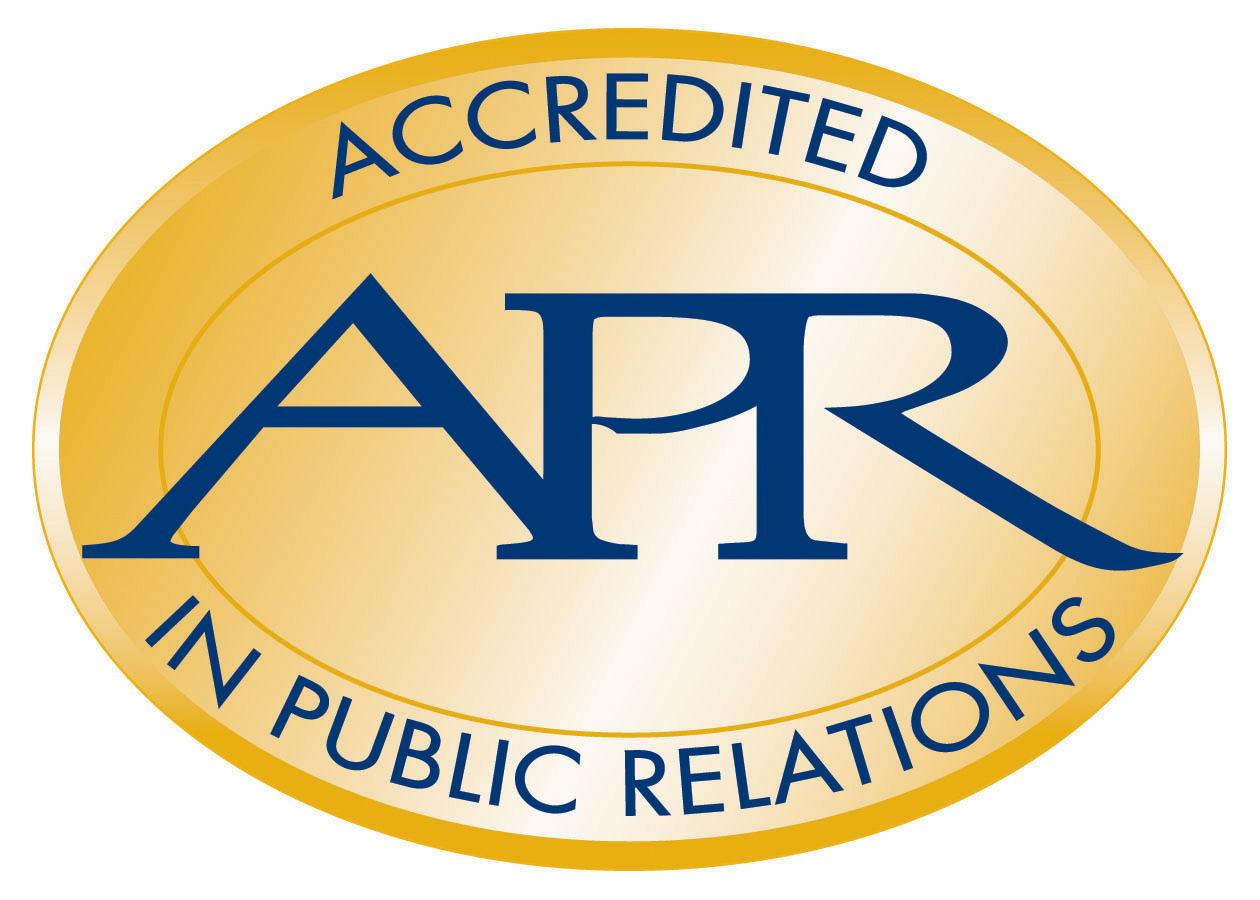Someone recently asked me why I pursued the
APR credential. The APR is the Public Relations profession’s only voluntary post-graduate certification program representing the most prestigious credential in the communications industry.
I highly recommend the APR. Social media has accelerated the number of people entering the PR profession – in a bad way. You hear of reports of unethical edits to Wikipedia pages and people who confuse influence with digital traffic. There are lots of publicity agents and content creators, but it’s not moving our profession forward – we’re moving backward. Earning the APR shows you’re part of the progressive bunch bringing ethical and high-quality PR standards to the table.
I pursued the APR because I wanted to distance myself and create my own lane because it’s time to separate the lucky amateurs vs. the professionals in PR. Being a millennial, minority female and MBA I realized how much getting an APR could elevate my profile and show my commitment.
There’s a big difference in the quality of service I provide and what I bring to the table vs. the person who has no formal education in PR, can only offer his or her large following on Twitter/Facebook/Instagram but doesn’t perform proper research, strategy, messaging development, and measurement of results. Major difference!
I also really like that in order to maintain your APR you have to mentor and “give back” over a three-year time period through lectures, books, etc. I am doing that already so it coincided with my own professional goals. I started working on my APR in the summer of 2012, passed my Readiness Review in August 2012 and took the exam a year later after studying on and off and recently passed (November 2013). To those thinking about getting their APR – what are you waiting for? Do it!
Preparing for the APR exam:
Study, Study and Study! I enrolled in the online APR course and I believe that was one of the major contributors to my success. Participating in the cohort sessions and discussing potential test questions with others in my learning cohort really helped me understand what was expected. The APR exam is scenario-based and you cannot memorize your way through the test – you have to really know what the next steps are and what you should do as a PR practitioner.
What I remember about the taking the test:
The hot and cold: It was freezing outside, but inside, it felt like Hades. All those people taking tests, and I was the only one there that day taking the APR exam.
The noise: The building I was taking the test in had construction going on. I heard loud banging from the other side of the wall at least twice.
Test proctors: I experienced random women walking up to you and just standing there – it makes you feel uncomfortable, but they have to do it to deter cheating.
My computer reset: I was 5 minutes from finishing the exam and I was checking over my answers. The computer reset and I freaked out, thinking I would have to sit for the exam all over again. Luckily, they had saved my test at the exact point that I had left it, so all was well.
The waiting: I waited 40 minutes to just get my seat and I was 30 minutes early as advised.
The traffic: There was lots of traffic that morning and I drove nearly two hours to arrive at my test center.
Sleep well the night before: A good night’s sleep and a eating a healthy breakfast go a long way for helping with test jitters.
I look forward to working with NJSPRA and my PRSA to help other PR pros get their APR and continue moving the PR profession forward. There are many efforts to
revitalize the importance of the APR credential. I have expressed my views on the PRsay blog as follows:
… There should be a stronger community of APRs online to attract more diversity and younger applicants. Show me that the APR is cool – show me what APRs are doing everyday and how they’re making a difference at their corporation, nonprofit or governmental organization. I think the main problem PRSA has is that their own members do not value the APR enough – if within our membership ranks there was more effort to hold the credential in higher esteem, coupled with an education campaign for SHRM, HR professionals and the Fortune 500, I think people would understand the value more. As a professional organization focused on communication, it is time we be very clear on what the APR is really about.
I look forward to helping build a better online community of APRs and showing those new to the public relations field that there are high standards. We can’t let those who don’t understand our profession define our profession.
40.925932
-74.634883
